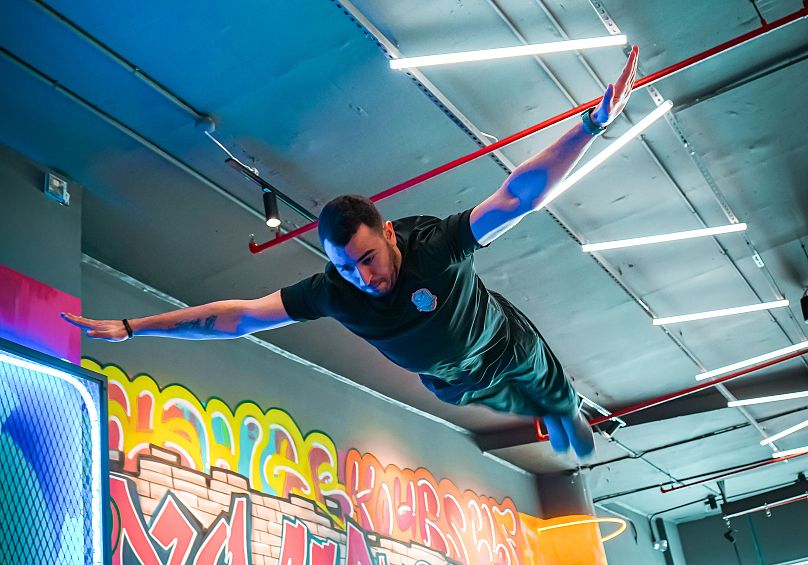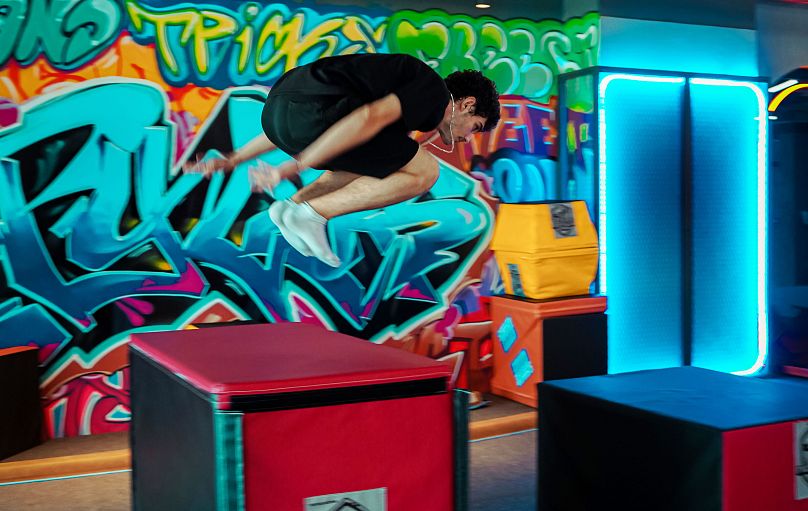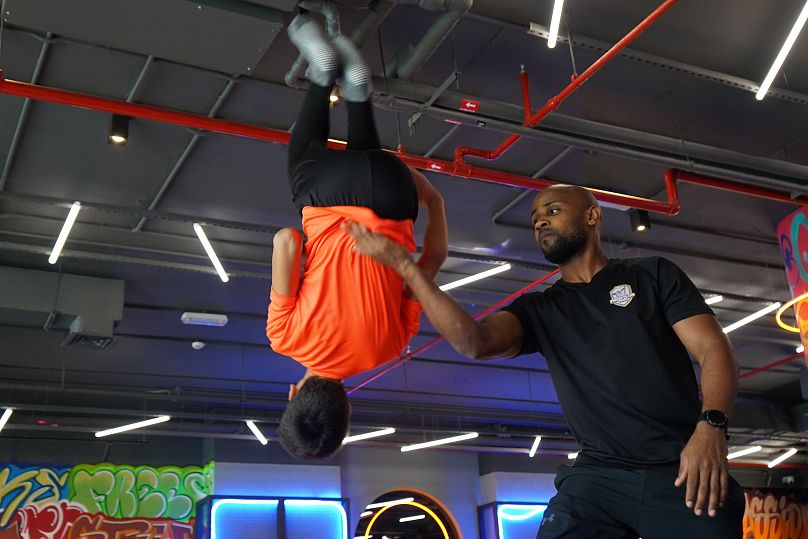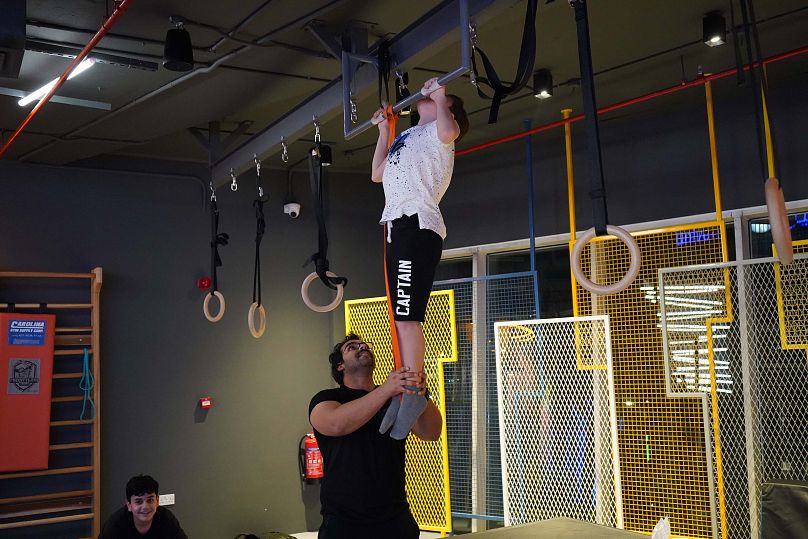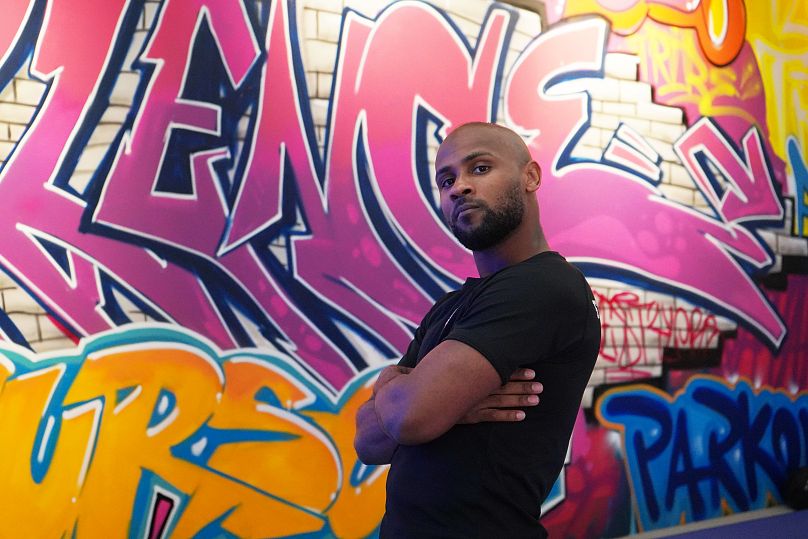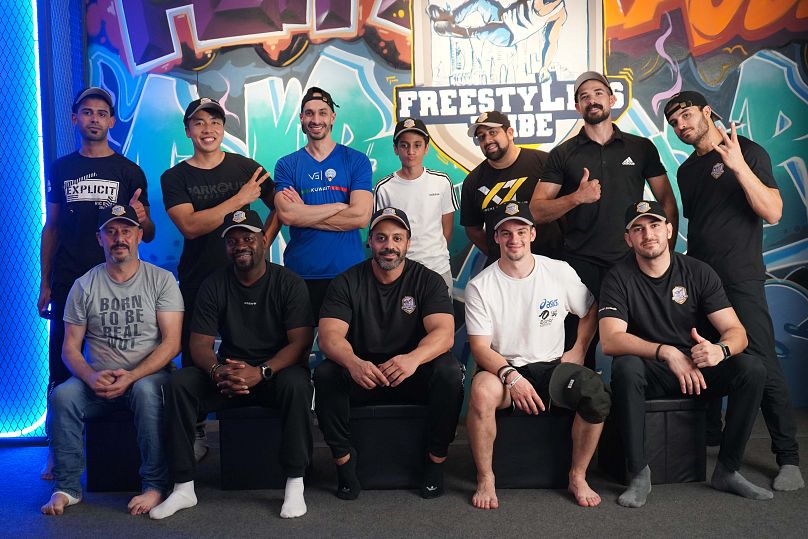"We fall a lot, but it's part of the game. If you don't fall, that means you're not learning."
SCENES shines a spotlight on youth around the world that are breaking down barriers and creating change. The character-driven short films will inspire and amaze, as these young change-makers tell their remarkable stories.
Achraf Bejaoui was 14 years old when he first came across parkour. "I was in Tunisia, it was Ramadan and I saw a couple of guys jumping and doing some flips. I asked them, 'What are you guys doing exactly?' They said, 'We're a group, we do breakdance and parkour', so I asked them if I could join them and that's how I started practising," he explains.
13 years later, Achraf is still practising the sport and is now head coach at Freestylers Tribe in Doha. Qatar's first parkour and freerunning sports centre. "Parkour changed my way of thinking in life. If I'm walking in the street and I see an obstacle, I feel like I should try that. That could be a double kong or a safety vault or whatever. So I see things differently. It's part of my life now," he recounts.
Parkour's Origins
The word parkour derives from the French words for an obstacle course, 'parcours du combattant'. The sport's origins are said to have been born in the French military during the years leading up to the First World War. Naval officer Georges Hébert designed a challenging obstacle course to provide his soldiers with similar athletic skills he had witnessed amongst the indigenous tribes in Africa.
French actor David Belle is the modern-day founder of parkour. He developed the sport in the 1990s after taking inspiration from his father's military background. Belle starred in the 2004 French action film, 'District 13', which featured parkour for the first time. The cult movie became an underground sensation and soon had thousands practising the sport across the world.
Freestylers Tribe
In recent years, parkour has seen a massive rise in popularity across the Middle East. Talal Altamimi and Manal AlAnsari established the Freestylers Tribe in Qatar to offer the best parkour experience. The duo created a safe space for enthusiasts to practise. They previously had to train in regular gyms.
This led to Talal and Manal creating a one-of-a-kind indoor parkour training centre where people, including children from the age of five, can practise jumping and climbing in a safe and professional environment.
"Parkour as a sport here in Doha is quite new. We're trying to introduce it to everyone. We want to try to inspire as many people as we can here to know that parkour is not only a sport, but it could be like a lifestyle that you can follow until you're 50 or 60 years old," says Freestylers Tribe coach Paul Mbaziira.
Physical, Mental and Emotional
Besides thrill-seekers, parkour is for everyone. It's a physically demanding sport that works your whole body. Even a basic jump requires precise hands, feet and head placement.
"Everybody thinks parkour is easy, but they are absolutely wrong because it's not only a physical effort, it's also a mental effort," Hamza Ganouni, a coach at the Freestylers Tribe, tells Scenes. "With every step you take, you have to study it very well and calculate it. So your body can understand if you can do this step or not. Even if you don't, you need to push yourself and encourage yourself," he adds.
Learning parkour can be tough. Jumping from extreme heights and hanging off tiny ledges on everyday streets is dangerous. Taking classes and learning from professionals is an essential part of the sport, explains Paul.
"We fall a lot, but it's part of the game. If you don't fall, that means you're not learning. You can feel better. You feel lighter. You feel stronger, more powerful, you move quicker. The more you understand parkour, the more you fall in love with it," he says. "To learn something, you need to keep doing it and repeating it and you need to get hurt many times to reach what you love to do," adds Hamza.
Parkour is here to stay.
Parkour has been officially recognised as a sport by the International Federation of Gymnastics. It's a step in the right direction, believes Achraf, who has high hopes for the sport in Doha.
"We have plans for a competition. It is going to be a tag competition, freerunning and parkour competition. We're going to introduce the whole of Doha to parkour," he explains.
The parkour trend is here to stay, so you will likely see a backflip being performed across Doha's skyscrapers at sunset by enthusiasts.













